How to get a Mentor Without Telling Them

Throughout my engineering career, I’ve always found mentors. Not by asking, “Hello, will you be my mentor?” and not by signing up for an online mentorship program.
Finding mentorship has always been a natural step for me. However, up until a few months ago it really was a blind spot. I did not realize how easily I found mentors or how I was doing it. In a one-on-one with my manager, she said, “You know, people really like working with you. You’re really good at getting people to help you, and you help them back in ways you don’t even realize.” I started to breakdown what I was doing and how I was approaching people for guidance.
Imagine someone approaching you right out of nowhere, face to face with fierce eye contact, and they ask you to be their mentor. That would be a lot. It’s intimidating, scary and overall an invasion of your personal space. However, if you sneakily slide over from the side, shoulder to shoulder, and casually ask for help on a small function, it’s less threatening. By casually asking for help on something small, it removes the stereotypical large time commitment of a mentorship.
Asking for help and putting myself in vulnerable situations in order to become a better engineer ends up not only progressing my knowledge in areas, but it helps others further their careers and even establish new threads of learning throughout the company or team. I’m not afraid to be vulnerable - I admit I don’t know a lot of things. But I am willing to admit I’m very good at getting mentors and I’ve discovered the tips to do it.
These tips on how to get a mentor without telling them, can also be used to get a mentee. If you are a senior engineer, looking to boost your leadership skills or knowledge sharing, finding a mentee is similar to finding a mentor.
What is Engineering Mentorship?
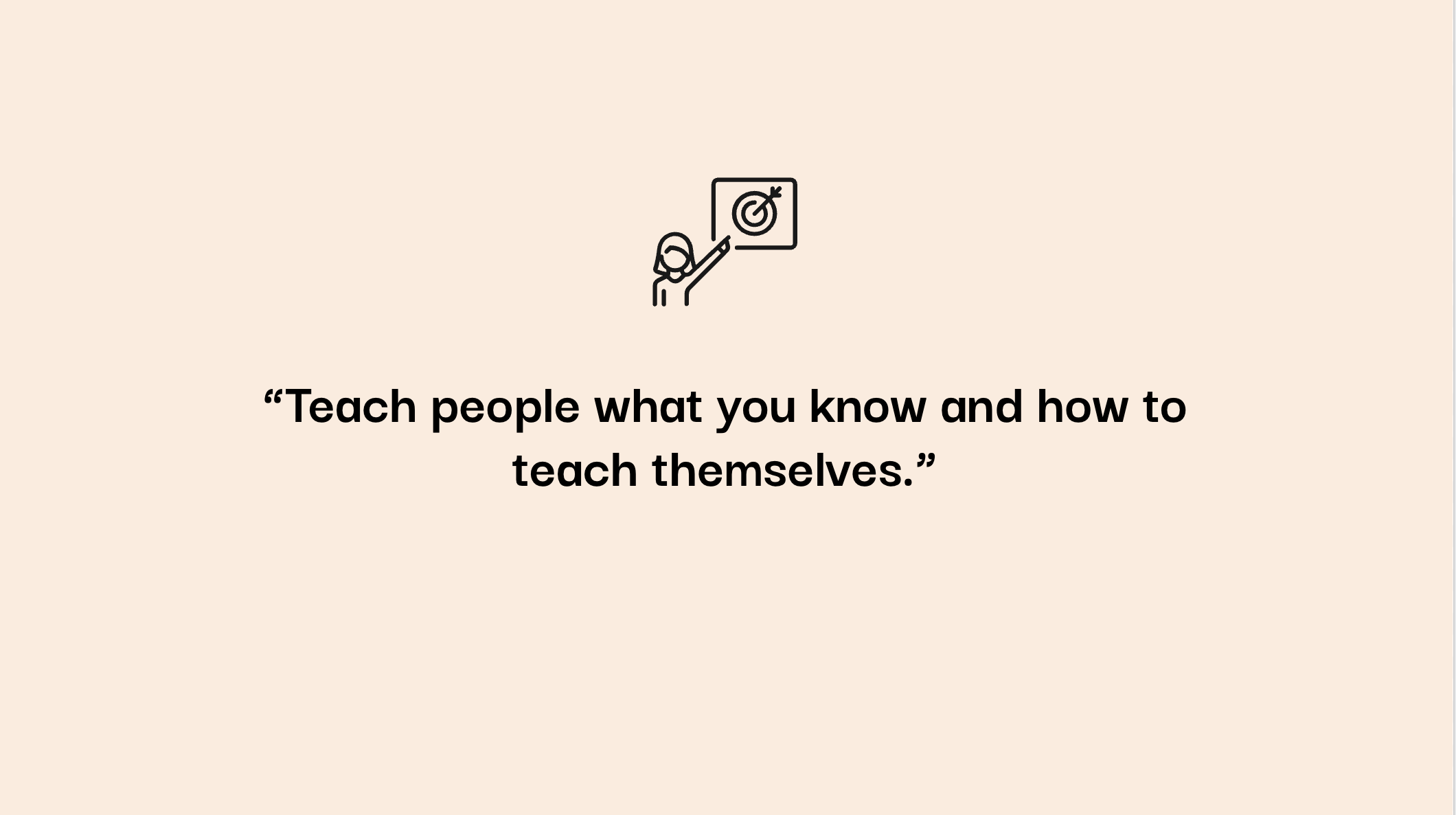
In most mentorship relationships, there is usually a mentor and a mentee. Throughout the relationship, these titles can flip back and forth. For example, I’m pretty good at front end work with React. Another teammate is not as experienced in that, but is full of wisdom and has worked with Rails for years. Both of us are working on a full stack project and need some help with the other’s expertise. In similar situations, at times you would be the mentor, and just as quickly you can be the mentee. Both partners should be open to the idea of learning from each other, not just a one-way street.
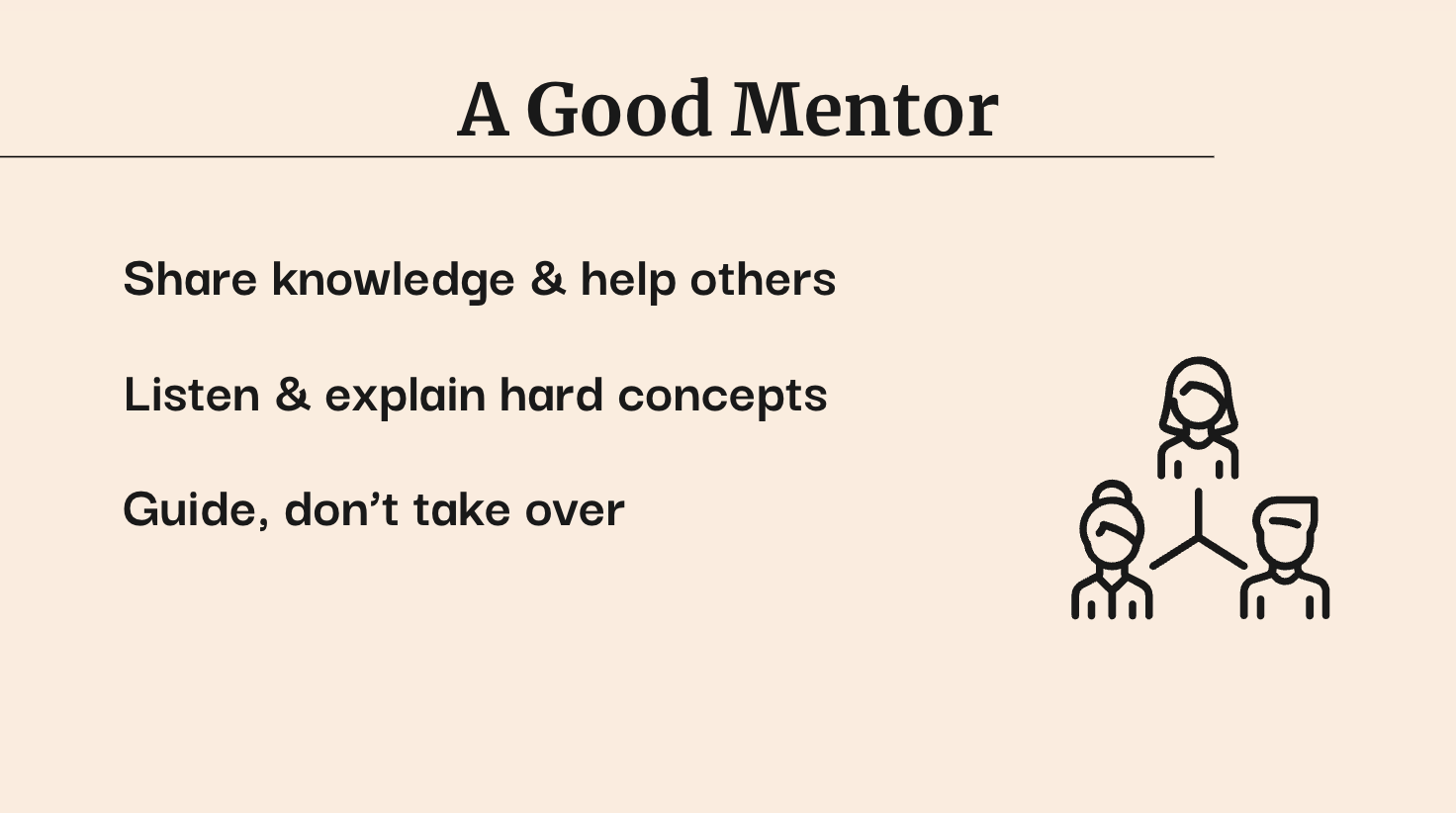
A Good Mentor
A good mentor is someone who is willing to share their knowledge and help others. They are willing to listen and explain hard concepts in a handful of different ways. I’ve found some of the most intelligent engineers I’ve worked with can explain difficult concepts simply and from 3 different perspectives. They provide guidance by guiding a mentee in a certain direction, not by doing everything for them.
Don’t take over the screen, don’t take over the keyboard. Teach them to teach themselves. If they are not good at searching for answers, Google with them. Copy and paste code from Stack Overflow with them! Show them your shortcuts to make their time and your time more efficient. Going slowly now leads to faster work in the long run. These little moments can be a mentorship, and you probably didn’t even know it.
Now, bad mentors are out there. It’s fun to show counterexamples, and I have a really fun one: I was working as an entry level engineer on a team, and I was pair programming with a more senior engineer. Each week, I kept leaving the pair sessions more confused and more lost than when I started. My code was a mess and my original code plan was spiraling out of control. This helped me understand I was a victim of "The Seagull Effect.”
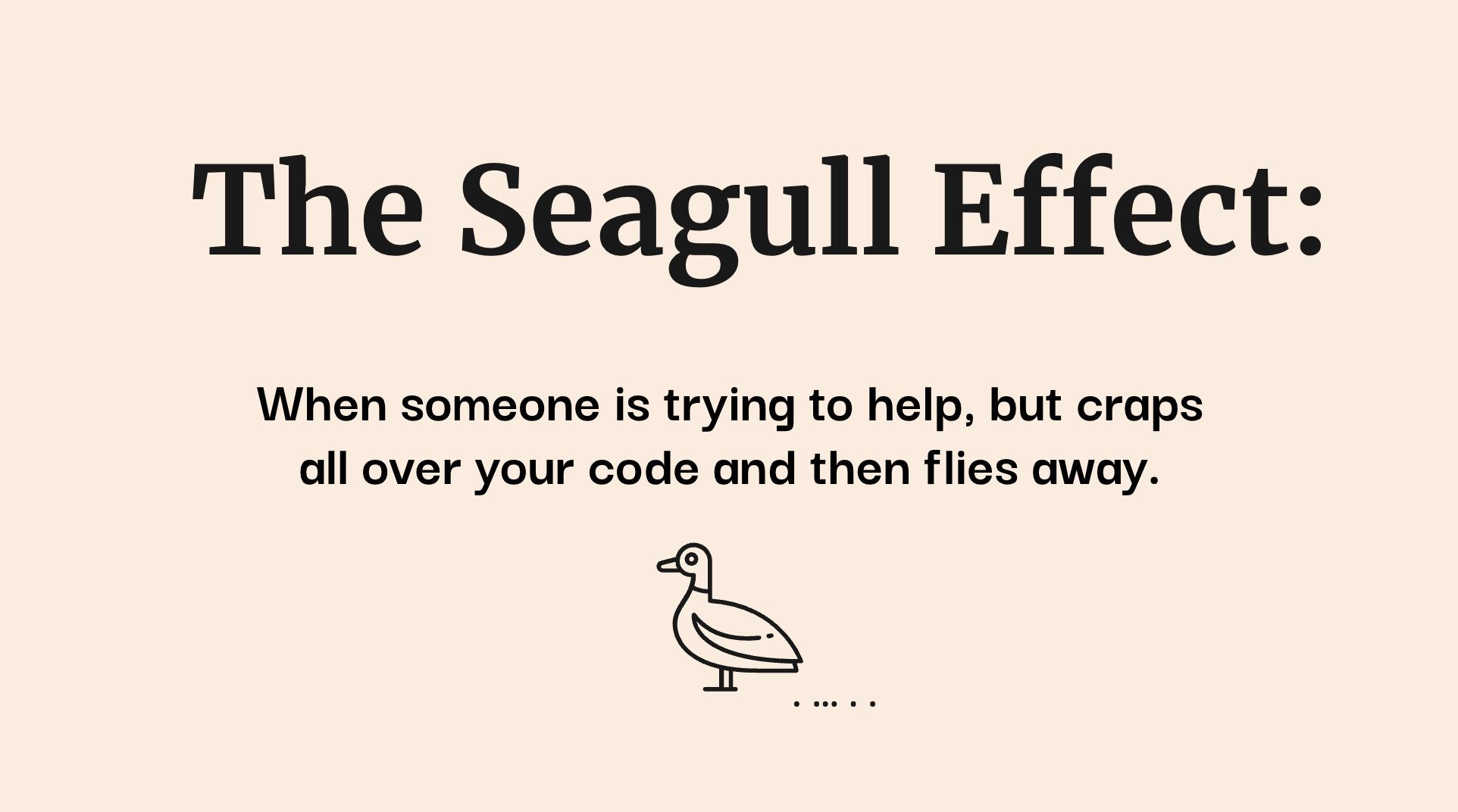
The Seagull Effect
The Seagull Effect: when someone comes in, craps on all of your code, and then flies aways. This doesn’t just apply to pair programming; seagulls can be found in many life situations. They attempt to help you, make a bunch of changes and then leave you hanging because they got overwhelmed with not knowing how to solve it. They might get too busy with their own work and leave you in a worse situation than when you started. You then are left with no solution and no confidence, and maybe you’re questioning your career and life choices. You should both be flying together in the right direction, not having one person crapping all over the place and flying away.
If this is happening, it’s time to take a pulse check of the situation. Be more direct with what you need, be more direct with feedback, and evaluate if that mentorship relationship is getting you to your goals. One of you could be overloaded with personal issues or overwhelmed with work projects. If it’s not working out, it’s time to talk it out, take a pause, or find a better partner that matches your learning style.
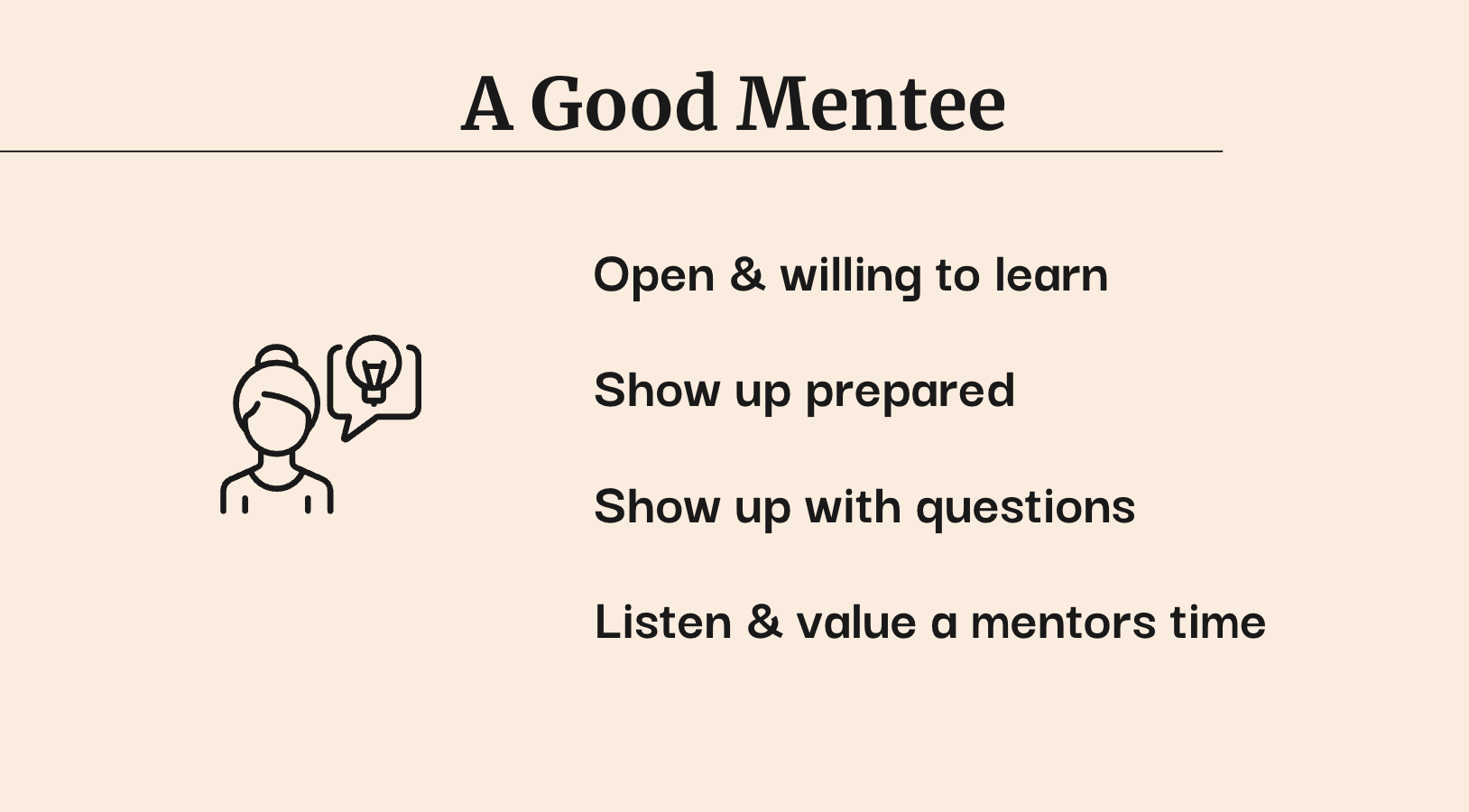
A Good Mentee
A good mentee is open and willing to learn. They show up prepared. They’ve googled the topic, watched videos, read blog posts, searched the company Slack, searched the code base, and found the file. They show up with questions and listen and value the mentor’s time.
I’ve written an article called, How to be a Good Partner when Pair Programming that includes a handful of tips to help mentees and mentors prepare for a smooth pair session.
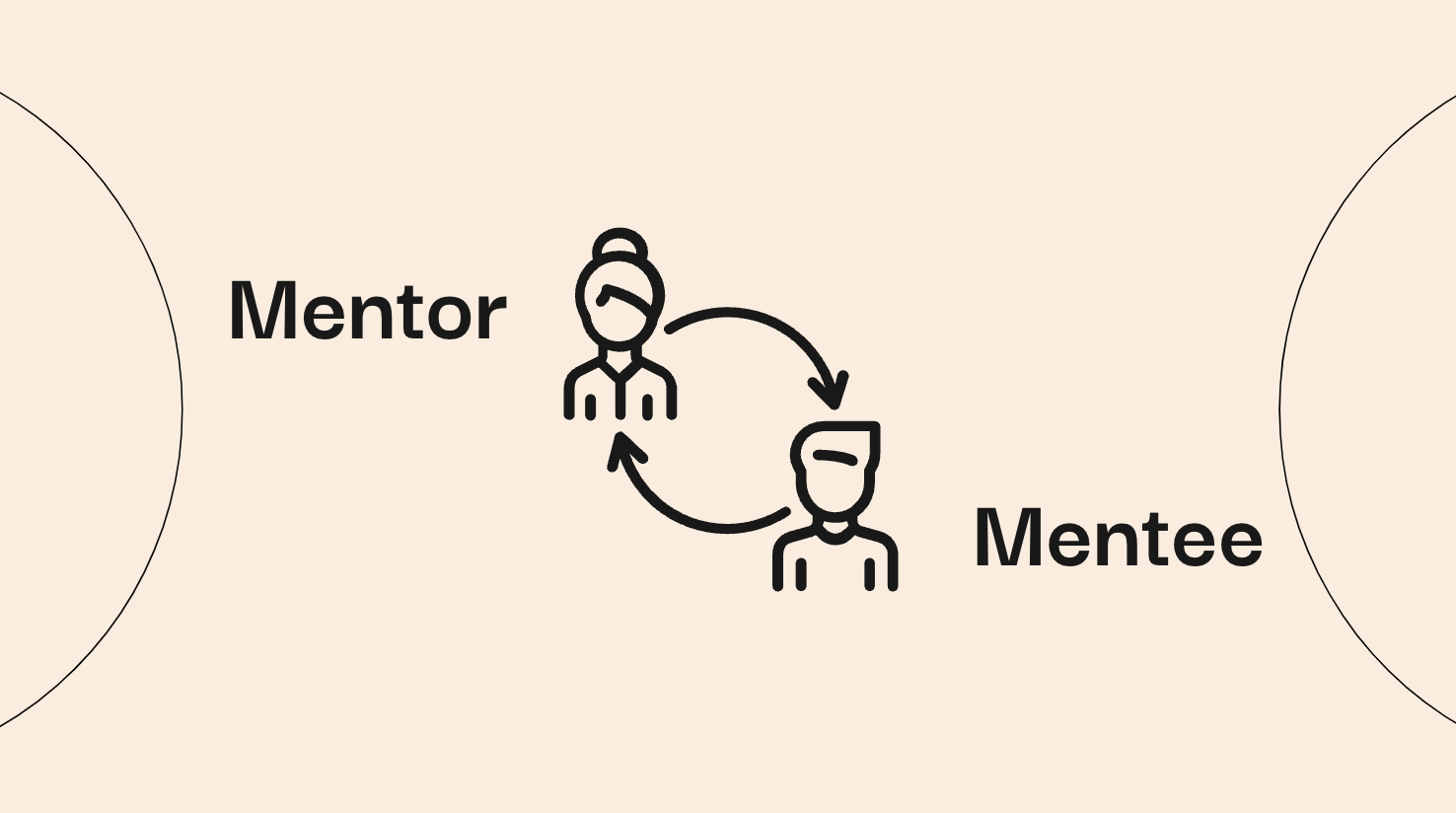
Mentorship is a great way to spend your time and get the satisfying feeling of having a fulfilling career. You can only feel good helping someone succeed, and you are rewarded knowing the impact you’ve made for that person. They would not have been where they are or who they are today without you. Think about how powerful it can be and how it can change the way we work with individuals and our teams and how we feel satisfied in our roles as engineers.
Both you and the other person need to show up wanting to achieve something. Whether it’s really granular like figuring out best architectural practices for a React app, learning the basics of Active Record, or getting 20 minutes of career advice, both individuals have to want to be there and need to get positive benefits out of it.
As I mentioned, throughout my career I’ve always had a mentor. Wherever I’ve worked, I’ve always found people’s strengths. Whether they have a decade of JavaScript experience or they have navigated their career with poise and confidence, I seek out people to help me. I love meeting new people and learning about them, from their strengths to their weaknesses.
You might be thinking, “Wow Erin, that is selfish.” And yeah, it is. I want to become a smart, more well-rounded engineer and I will find the allies, materials, and people to help me achieve these goals. Everyone needs help with something different. The first step is to evaluate what my weaknesses are and then find who can help me strengthen them. And then, vice versa, what are my strengths that I can share and teach others?
Now, let me tell you how I got those mentors without really telling or asking them through mentorship programs, pair programming, and leveling up.

Kit
When I joined Kit a few years ago, I’d only had a few weeks of working with backend code. So I knew I needed to do a lot of self teaching, but I also wanted to be able to learn from a more senior engineer who has been at the company for some time.
Luckily, we had a formal mentorship program where I could sign up and share my goals. I ended up getting paired with a great mentor. Initially the program was quarterly so you could switch mentors, but we stuck it out and have been meeting every other week for over 2 years.
We are both learning and continue to learn from each other. We focus on side projects like a sign up email validation feature that checks a new sign up email against a 3rd-party API. It then updates the UI with the proper email suggestion.
I have the space and time to move slower with a project, ask questions, pause, and learn how to do basic Ruby syntax. For my learning style, it has been a great setup, and it has helped me become a better full-stack engineer.
From the mentors perspective, I’ve opened a road to work on parts of our app that do not fall under any particular team. We get to work on a passion project of theirs while I get to learn, and they get to explore more parts of the code they never would originally have time for. It also forces us both to look back on documentation. We both learn new, updated syntax or if something got deprecated. It’s a win-win.
Pair Programming
Pair programming has proven to be a great way to learn from each other and raise the level of the entire team. It isn’t always everyone’s first thought, because it can be hard to be vulnerable. I made it a point to frequently put myself out there, asking someone to pair when I was working in an unfamiliar area. I’ve seen it become more common and embraced by my team, leading to better results.
You can help build a culture of engineers working and learning together through participation in and encouragement of pair programming. By working together more, the entire team is better for it. A simple Slack message in a public channel of, “Hey anyone have time to pair today on React useEffect? I am creating a new one and I’m missing something with not knowing how the page loads,” could lead to a great pairing session and spread knowledge of your codebase across teams. Saying you don’t know something isn’t a sign of weakness; it’s an opportunity to be vulnerable and allow yourself to grow and learn.
Leveling up Yourself and Leveling up Others
How can mentees help someone level up? How can you help yourself by helping someone, say, get promoted?
Another teammate and I started working together once a week for an hour sharpening up my frontend skills. And as I was leveling up, I did not realize they were also leveling up. Not only was I getting really great at Tailwind, debugging in dev tools, and finding different UI solutions, they were learning how to mentor and eventually be a manager. I would ask them for career advice, and they found themselves discovering they really liked this type of work. Eventually, an engineering manager role opened up at Kit. They had gained experience to help them get the job because of the mentorship we have. Mentoring can open the door to career opportunities. It does not need to be a heavy responsibility or a large time commitment.
—
Remember to not rush someone head-on when looking for a mentor. Start small by approaching them from the side with a small question, which can lead to a beautiful mentorship. Putting yourself out there as open to learning as a mentee or a mentor can inspire other people to want to do the same. It can not only make you and your partner better engineers, it can help make the company an open learning environment.
I hope these tips help you in your career goals and help you discover how to get a mentor without telling them, or maybe secretly get a mentee.